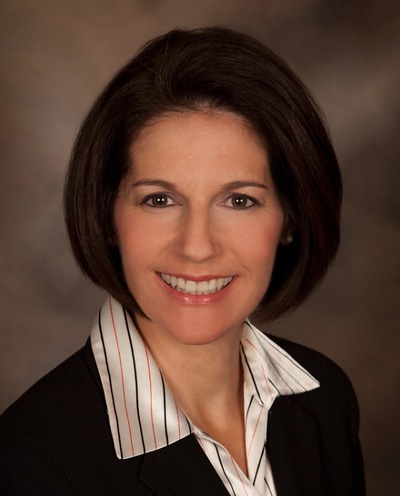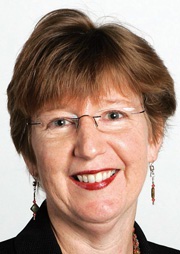Monday, Oct. 25, 2010 | 2 a.m.
Sun Archives
- Questions and answers about the foreclosure freeze (10-9-2010)
- AG announces campaign to fight foreclosure scams (8-17-2010)
Many times a lender’s representative shows up at a home foreclosure mediation hearing with the wrong documents, a homeowners’ lawyer says. Not true, a banking executive counters: The percentage of foreclosures based on flawed paperwork is virtually nil.
The wide gulf between these observations shows how hard it will be for the Nevada attorney general’s office to determine whether banks have used faulty documents to reclaim homes.
Allegations have surfaced nationwide that banks have used poorly trained workers to handle foreclosures, haven’t taken enough time to read the paperwork, haven’t properly notarized documents, have placed them in the wrong files and even threw them away by mistake.
Nevada Attorney General Catherine Cortez Masto announced this month that her office joined 48 states in a widespread probe into these allegations while federal agencies launched parallel investigations.
Cortez Masto’s office is closed-mouthed about how it will pursue its investigation beyond contacting mortgage servicers. But there could be a potential gold mine of information in the foreclosure mediation program overseen by the Nevada Supreme Court and in the petitions for judicial review filed in District Court in Clark County by homeowners and lenders unhappy with mediation.
In the year after the voluntary mediations began in July 2009, officials estimated that more than 62,500 single-family residences in Nevada received default notices from lenders. Of those, 3,749 avoided foreclosure through mediation and 156 sought judicial review. Many who avoided foreclosure stayed in their homes after receiving modified bank loans. Others agreed to short sales to get out from under the properties.
What isn’t tracked is the number of foreclosures that may have occurred prematurely in Nevada because lenders didn’t have all the necessary documents, but still got away with reclaiming the properties.
Assembly Speaker Barbara Buckley, D-Las Vegas, whose 2009 bill created the mediation process, thinks the number could be substantial because of what she sees in her job as executive director of the Legal Aid Center of Southern Nevada.
“We have seen many clients with complaints about their lenders,” Buckley said. “They can’t get ahold of anyone at a bank and they request documents over and over again.”
Mediator Philip Hoffman of Las Vegas said that of the estimated 100 cases he has mediated, he reached agreements in about 85 percent of his cases. Of the 15 cases without a settlement, he estimated that about a third were because the banks acted in bad faith by showing an unwillingness to negotiate, such as by using delay tactics. Hoffman is one of 270 individuals trained and appointed to serve as a mediator in the program.
Hoffman doesn’t attempt to resolve whether the bank seeking the foreclosure actually owns the loan. Many banks use the Mortgage Electronic Registration Systems, which stores mortgage loan information for lenders, including loans that were transferred from original lenders to other banks. But the system, known as MERS, come under fire from homeowners and their attorneys nationwide who question whether it has the legal authority to initiate foreclosure.
Hoffman doesn’t think it is the place of a mediator to settle challenges of the validity of documents by homeowners. “If there is a MERS dispute, the proper forum is before a judge,” he said.
The mediation process has its flaws. One of the biggest, said Las Vegas attorney Robert Kern, who has represented homeowners in mediation, is that lenders are permitted to certify that they own the mortgage documents without having to produce the originals. Although the certification must be notarized, Kern said the lender can use its employees to notarize the documents.
“We have to accept that certification, and we have no way in mediation to challenge whether it is true,” Kern said.
He recalled one case when a lender came to the mediation with documents on a home owned by someone in Arizona that had nothing to do with the Nevada dispute.
What’s needed is a revision allowing the mediator to demand the original documents in, for example, every 100th case involving a particular lender, he said. If that lender cannot produce originals while certifying otherwise, Kern said the punishment should be the lender must produce originals in all subsequent mediations for a certain period. The theory is that if lenders think they might get caught with faulty documents, they won’t attempt to use them.
Bill Uffelman, president and CEO of the Nevada Bankers Association, counters that although human errors are possible in foreclosure actions, 99.99 percent of them are legitimate.
“I’m sure there are flaws in getting things done but I believe in the system,” he said.
As an example of that faith, Uffelman pointed to the decision by Bank of America last week to resume foreclosures after a temporary halt during an internal review of its process.
But Buckley and her legal aid foreclosure specialist, attorney Michael Joe, think there is much evidence of flawed documentation in foreclosures.
Joe said lenders, to save money, will do anything to skirt state laws. He cites instances where a bank has had someone tape a default notice to a homeowner’s front door rather than attempting to serve the notice in person, as required.
“They feel the laws don’t apply to them,” Joe said. “They’re just out to lie, cheat and steal.”
Joe hopes Nevada will join the 23 states that require lenders to file foreclosure documents in court because it would give homeowners more legal clout to retain their homes. In Nevada, he said, banks simply have to file notices of default with the county recorder without requiring judicial review, making it more difficult for homeowners to mount a challenge.
Homeowners, though, can petition for judicial review if they are unhappy with mediation. Those petitions are reviewed by District Judge Donald Mosley. His law clerk, Brian Watkins, said the court sees problematic paperwork on foreclosures but it often has more to do with the homeowner lacking copies of pay stubs, tax documents or other evidence of financial worth or the lender having sent foreclosure documents to the wrong address.
Regardless of whether faulty documentation has led to improper foreclosures in Southern Nevada, Las Vegas attorney Paul Terry said the homeowners associations he represents as a board member of the Nevada chapter of Community Associations Institute want the issue resolved quickly. That’s because homeowners associations can’t collect assessments from homeowners while the foreclosure process lingers on — assessments that help pay for maintenance of streets, landscaping and other common areas.
As long as the issue of flawed documents remains unresolved, he said, “it’s going to have an unintended negative impact on us.”



Join the Discussion:
Check this out for a full explanation of our conversion to the LiveFyre commenting system and instructions on how to sign up for an account.
Full comments policy